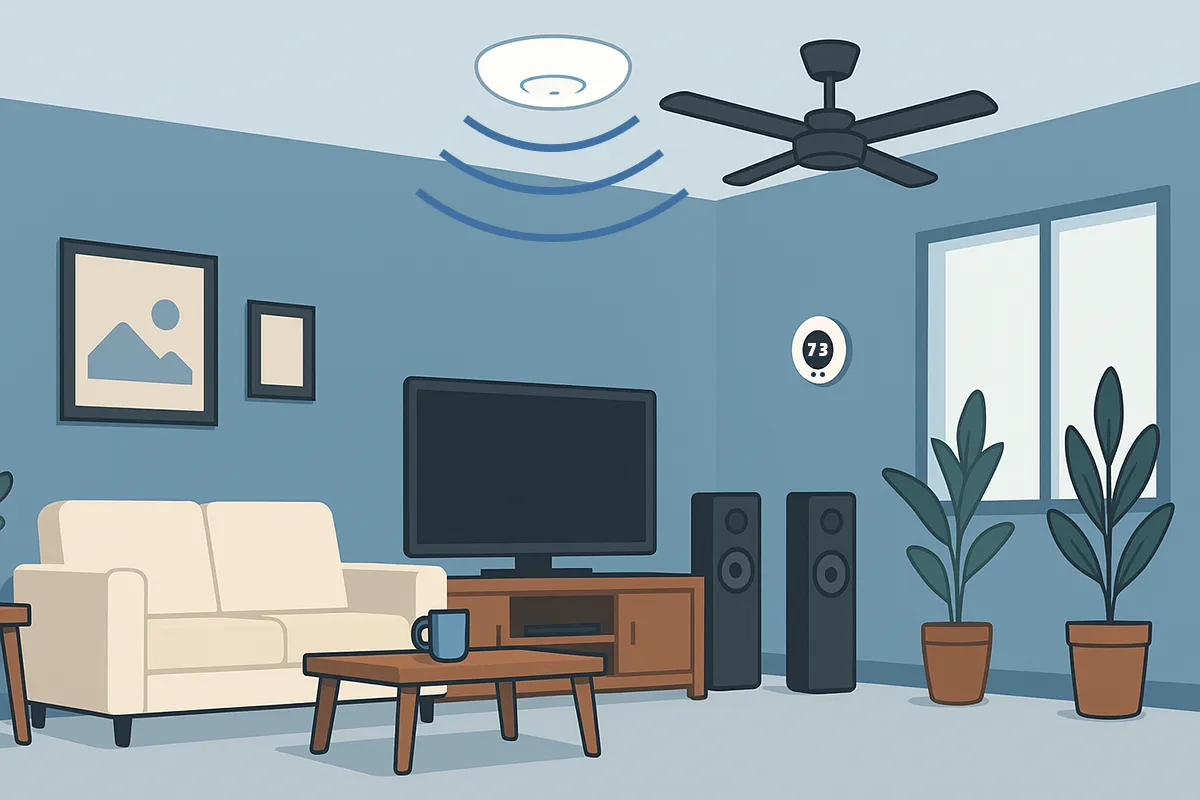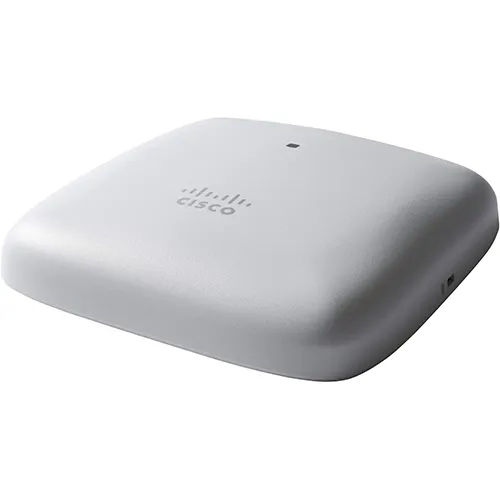AppsSensorsComputersLightingComponentsSecurityEnergyEntertainmentAppliancesHouseholdTelecomHubsNetworkingSelf-HostedCloudPhonesRadiosPlugsBulbsSwitchesLaptopsMini PCSoCCPUGPUNPUMemoryMotherboardNVMEWiFiFansLocksDoorbellsCamerasAlarmsSensorsMetersPlugsSolarBreakersTVsStreamingSpeakersAudio SystemsSmart KitchenSmart RefrigeratorsSmart DishwashersSmart Coffee MakersSmart OvensWashersDryersWater HeatersRefrigeratorsVacuumsMopsToothbrushesMirrorsScalesHumidifiersButtonsClimatePresenceZigbee HubZ-Wave HubWiFi HubBluetooth HubMatter & Thread HubLoRa HubMulti-Protocol HubSwitchEnclosureCurtainsWiFi APRoutersTablets
The Backbone of the Smart Home: Why WiFi Matters More Than Ever
Published: May 3rd 2025 @ 11:16PM
Choosing the Right WiFi Hardware to Unlock the Full Potential of Your Smart Home
In today's smart home ecosystem, WiFi is not just important, it is essential. Every voice command, mobile app tap and automated routine depends on reliable, fast and secure wireless networking. If you are building a new smart home or expanding an existing one, understanding the role of WiFi and investing in quality networking equipment is critical to unlocking the full potential of your devices. In this guide, we will walk through why WiFi is the unsung hero of the modern smart home and how to make smart choices for your network's foundation.
WiFi: The Heartbeat of the Smart Home
Almost every major smart home platform — Amazon Alexa, Google Home, Apple Home, SmartThings, and beyond all depend on robust WiFi to deliver their promise of a connected life. Smart lights, thermostats, security cameras, sensors, and appliances are increasingly reliant on WiFi, depending on your network for real-time control, updates, and automation. Poor WiFi does not just slow down your streaming; it directly impacts the reliability of your smart home. Without strong WiFi, devices can lag, drop offline, or even fail to operate altogether.
The Evolution of Local Control: Matter and Thread
A major leap forward for smart homes is the advent of Matter and Thread, two technologies focused on reliability and local device control. Thread creates its own low-power, mesh-based network between devices, but it still needs a strong WiFi network to bridge Thread devices to your home platform. Meanwhile, Matter-certified devices, whether WiFi or Thread-based, thrive when they can communicate locally — ensuring that your smart home continues functioning smoothly even if your internet connection drops. Good WiFi infrastructure acts as the backbone that keeps all these layers connected, fast, and private.

Why Your Router and Access Points Matter
Not all WiFi is created equal. Many consumer-grade routers simply are not built to handle the simultaneous traffic from dozens or sometimes even hundreds of smart devices pinging constantly. Poor-quality routers can bottleneck traffic, cause disconnections and open your network to security risks. Choosing networking hardware designed for high device density, seamless roaming, and robust security protocols ensures that your smart home grows without growing pains. Features like WiFi 6/7 and multi-user MIMO (MU-MIMO) are no longer luxuries, but are in fact necessities.
Trusted Brands That Deliver: Ubiquiti, Cisco, and More
When it comes to reliable, scalable WiFi performance, brands like Ubiquiti and Cisco stand out for a reason. Ubiquiti's UniFi lineup offers professional-grade features like mesh networking, load balancing, and detailed device monitoring without requiring an IT degree to manage. Cisco, long known for enterprise networking, also offers home and small business solutions that prioritize stability and security. Utilizing these companies which not only often means better support and warranty options, but it also means building your smart home on hardware known for handling real-world, heavy-load environments. Other trusted networking options include Netgear and Netgate (pfSense-based appliances for advanced users).

Featured Product
Cisco Business 240AC Wi-Fi Access Point
Where to Buy
Supported Connectivity
wifi
localConclusion
The best smart homes start with the best networks. WiFi is not just a convenience, it is the nervous system of your connected life. By understanding how your devices depend on it, embracing technologies like Matter and Thread, and investing in robust, proven networking hardware, you are setting your smart home up for years of reliable, secure, and smooth performance. Do not let bad WiFi hold your home back, build it strong from the start.